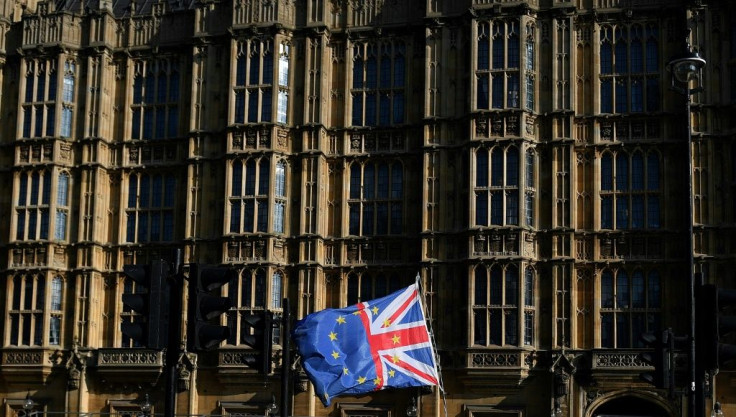UK 'Remainers' Hope Tactical Voting Can Stop Brexit

While Prime Minister Boris Johnson wants an election to "get Brexit done", his opponents see it as a chance to keep Britain in the European Union -- but it will require tactical voting.
The latest opinion polls suggest the Conservative leader is heading for a parliamentary majority in the December 12 vote.
Surveys indicate just over half of Britons oppose Brexit but their votes are split between the main opposition Labour party, which wants a re-run of the 2016 referendum, and several others.
New projections by the pro-European Best for Britain group suggest that if 30 percent of "Remain" voters cast their ballots strategically, a coalition committed to a so-called "People's Vote" could take office.
With research suggesting voters increasingly identify along Brexit lines, politicians hoping to stop Britain's EU exit urged them to hold their noses and make the tactical choice.
"This is going to be a Brexit election whether people want it or not," said Vince Cable, an MP and former leader of the Liberal Democrat party, which wants to reverse Brexit.
While tactical voting was "not ideal" -- he said he lost half of the 10 elections he had ever stood in due to such behaviour -- Cable argued: "It's a powerful tool and one we've got to use."
'Up to the voters'
The main party leaders have publicly condemned any talk of electoral pacts, for obvious reasons -- they want voters to support them.
Johnson, for example, has repeatedly denied he will team up with eurosceptic Nigel Farage's populist Brexit Party, to avoid splitting the "Leave" vote in some constituencies.
Labour has meanwhile dismissed as "fake news" Johnson's claim that it has promised the anti-Brexit Scottish National Party a new independence referendum if they form an alliance.
The issue of a breakaway Scotland divides the pro-Remain parties.
But on the ground elsewhere, there is evidence of parties working together.
In a by-election in the Welsh constituency of Brecon and Radnorshire in August, the Lib Dems took the seat from the Conservatives after two smaller pro-European parties agreed to stand aside.
In the coming election, the Lib Dems have agreed not to field a candidate against Dominic Grieve, a former minister expelled from the Conservative party for opposing Johnson on Brexit.
He is running as an independent but is committed to a second referendum on Britain's EU membership.
"Brexit must be the defining issue of the election because it's likely to have a bearing on every other topic that's likely to follow," Grieve said.
Tactical voting website
Best for Britain has developed a website -- getvoting.org -- to help people work out how to cast their vote in the most strategic way.
"If the 'Remain' parties are not able to do pacts, then it's going to be up to the voters," chief executive Naomi Smith said.
The group's data is still incomplete as not every candidate has been selected for the election, and not all have declared their stance on a new referendum.
But Smith said: "We are very very hopeful that if enough people follow our advice we can stop a Johnson majority."
What happens then of course would be another numbers game to try to make pledges a reality.
© Copyright AFP 2024. All rights reserved.





















